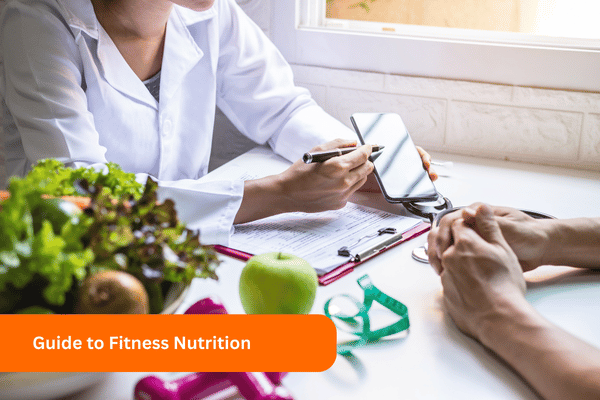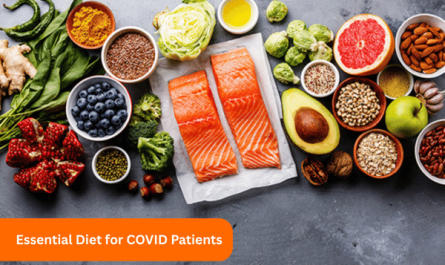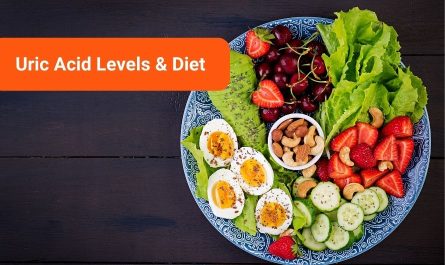Guide On Fitness Nutrition
Fitness nutrition plays a crucial role in achieving optimal performance and maintaining a healthy lifestyle. Whether you’re looking to improve your workout results, manage a specific health condition, or simply feel more energized, the right nutrition is the foundation for success. This guide will walk you through the essential elements of fitness nutrition, including what to eat before and after workouts, the importance of hydration, and how to tailor your diet to meet your specific fitness goals.
Why Fitness Nutrition Matters
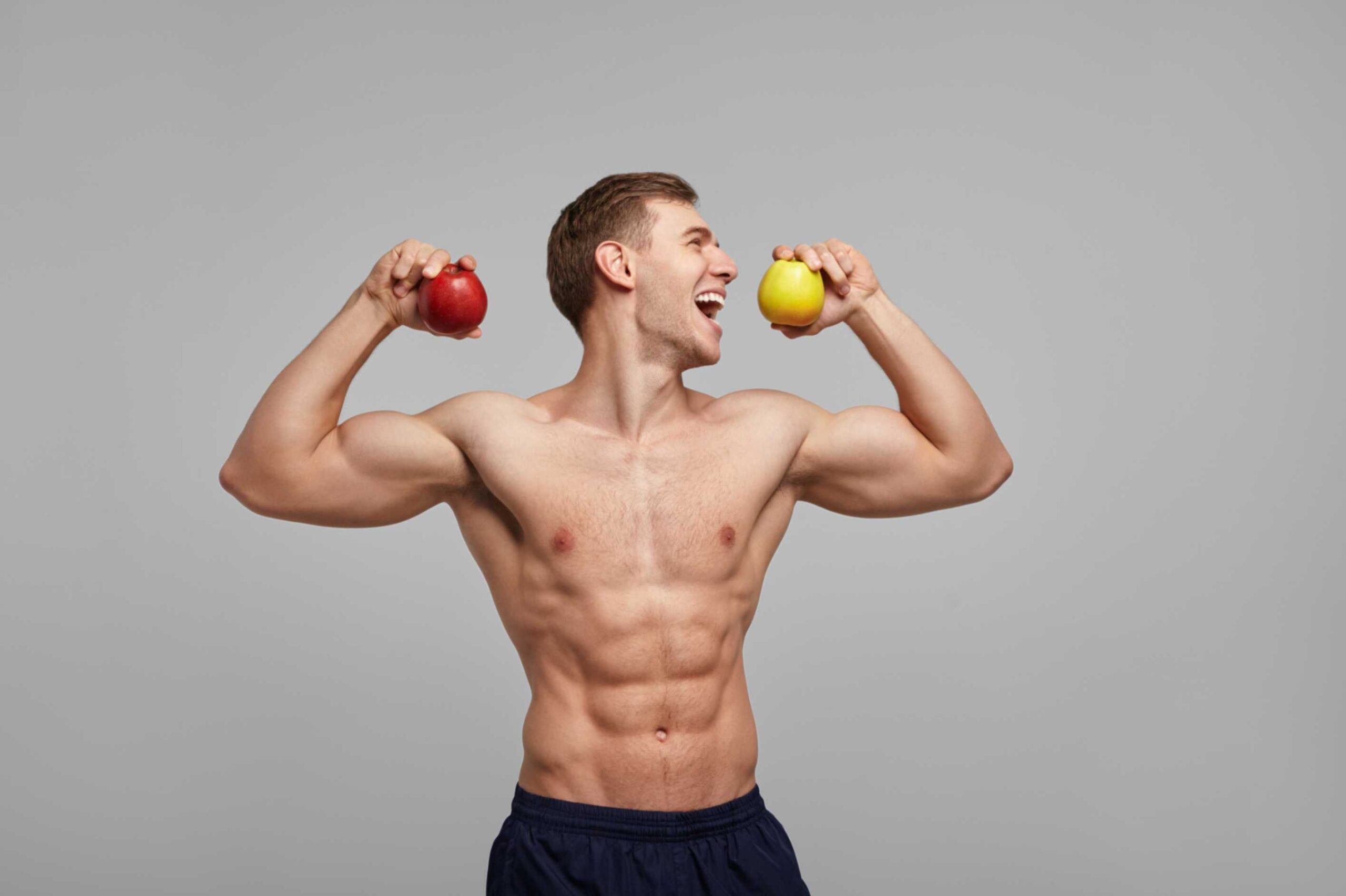
Proper nutrition is the fuel your body needs to perform at its best. Without the right balance of nutrients, your body may struggle to recover, build muscle, or maintain energy levels during physical activity. Fitness nutrition isn’t just about eating; it’s about eating intelligently to support your fitness goals. Whether you’re an athlete, a fitness enthusiast, or just looking to get healthier, understanding how to fuel your body will help you maximize your potential.
This guide will provide you with:
- Essential nutrients for fitness
- The importance of pre- and post-workout nutrition
- How to tailor your diet to different fitness goals
- The role of hydration in fitness performance
- Key dietary tips for maintaining muscle, energy, and recovery
Essential Nutrients for Fitness
Nutrition is about more than just counting calories. It’s about getting the right types of calories, packed with essential nutrients. The following nutrients are key to supporting your fitness journey:
- Protein
Protein is the building block of muscle. After a workout, your body needs protein to repair muscle fibers and promote growth. Aim for a combination of lean proteins such as chicken, fish, tofu, or legumes. Protein shakes are also a convenient option for those who need a quick post-workout refuel. - Carbohydrates
Carbs are the body’s primary source of energy. Complex carbohydrates like whole grains, oats, and vegetables provide a slow release of energy, making them ideal for long workouts. Fast-digesting carbs, like fruits, help replenish glycogen stores after exercise. - Fats
Healthy fats, such as those found in avocados, nuts, and olive oil, are essential for hormone production and joint health. Fats also provide a sustained energy source for longer training sessions. - Vitamins and Minerals
Micronutrients like vitamins and minerals play crucial roles in muscle function and recovery. For example, vitamin D helps with calcium absorption, which is vital for bone health, and magnesium supports muscle relaxation after intense physical activity.
Pre- and Post-Workout Nutrition
What you eat before and after your workout can significantly impact your performance and recovery. Here’s what to keep in mind:
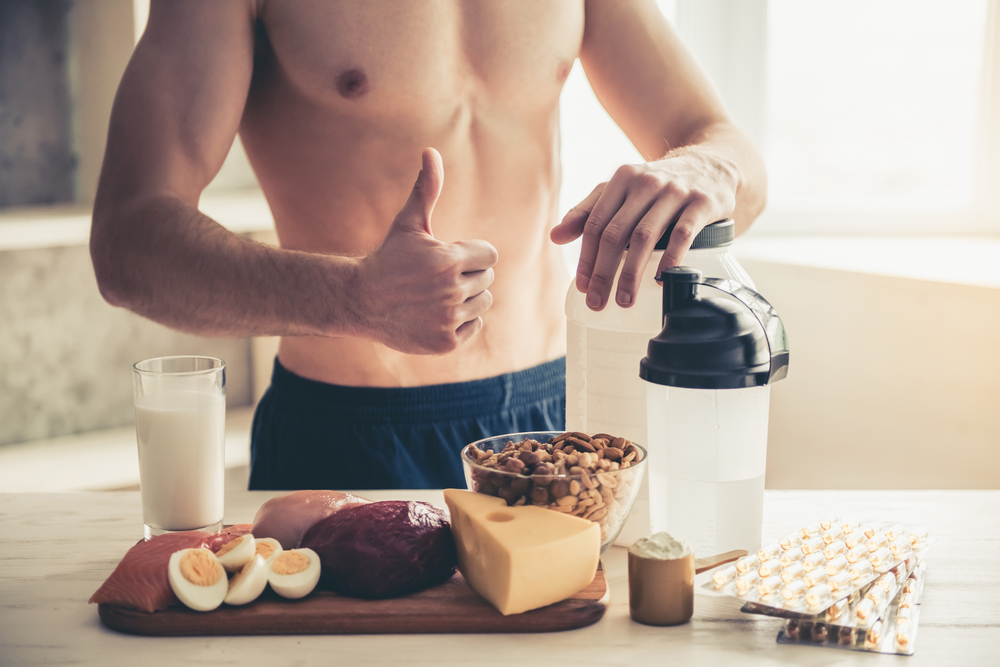
- Pre-Workout Nutrition
Before a workout, you want a meal that provides energy without feeling too heavy. Aim for a meal with a balance of carbs and protein about 1–2 hours before your workout. For example, a banana with peanut butter or a small serving of oatmeal with a scoop of protein powder can provide lasting energy. - Post-Workout Nutrition
After a workout, your body needs to replenish glycogen stores and repair muscle tissue. A meal rich in protein and carbs within 30 minutes to an hour after exercise can speed up recovery. A smoothie with protein powder, fruits, and a handful of spinach can provide the right mix.
Hydration: The Unsung Hero of Fitness
Water is often overlooked in fitness nutrition, but it plays a crucial role in performance and recovery. Dehydration can impair your ability to perform during exercise and hinder recovery afterward. The general guideline is to drink at least 8 cups (2 liters) of water a day, but active individuals may need more.
- Hydration Before Exercise
Drink water throughout the day and aim to consume about 16-20 ounces (500–600 ml) of water 1–2 hours before exercising. - Hydration During Exercise
For workouts lasting more than an hour, sipping on water every 15-20 minutes can help maintain hydration levels. - Hydration After Exercise
After exercise, drink water or an electrolyte-rich beverage to replace lost fluids and minerals.
Tailoring Your Diet to Fitness Goals
Whether you’re training for a specific event, building muscle, or aiming for fat loss, your nutrition needs will vary. Here’s how to adjust your diet based on your fitness goals:
- Building Muscle
For muscle growth, focus on a calorie surplus—eating more calories than you burn. Protein is crucial, but don’t neglect carbs, as they provide the energy required to fuel intense workouts. Healthy fats are also important for hormone regulation, which supports muscle development. - Fat Loss
If you’re working towards fat loss, creating a calorie deficit (eating fewer calories than you burn) is essential. Emphasize high-protein foods to maintain muscle mass while reducing calorie intake. Also, focus on nutrient-dense foods to ensure you’re getting all the vitamins and minerals your body needs while cutting down on calories. - Endurance
If you’re an endurance athlete or engage in prolonged cardio sessions, the key is to fuel your body with a steady supply of carbohydrates. Opt for complex carbs like brown rice, sweet potatoes, and whole wheat pasta. Protein is still important, but carbs will be your main source of fuel.
Key Dietary Tips for Muscle Maintenance, Energy, and Recovery
Maintaining muscle, sustaining energy, and optimizing recovery are fundamental aspects of fitness. Here are some actionable tips:
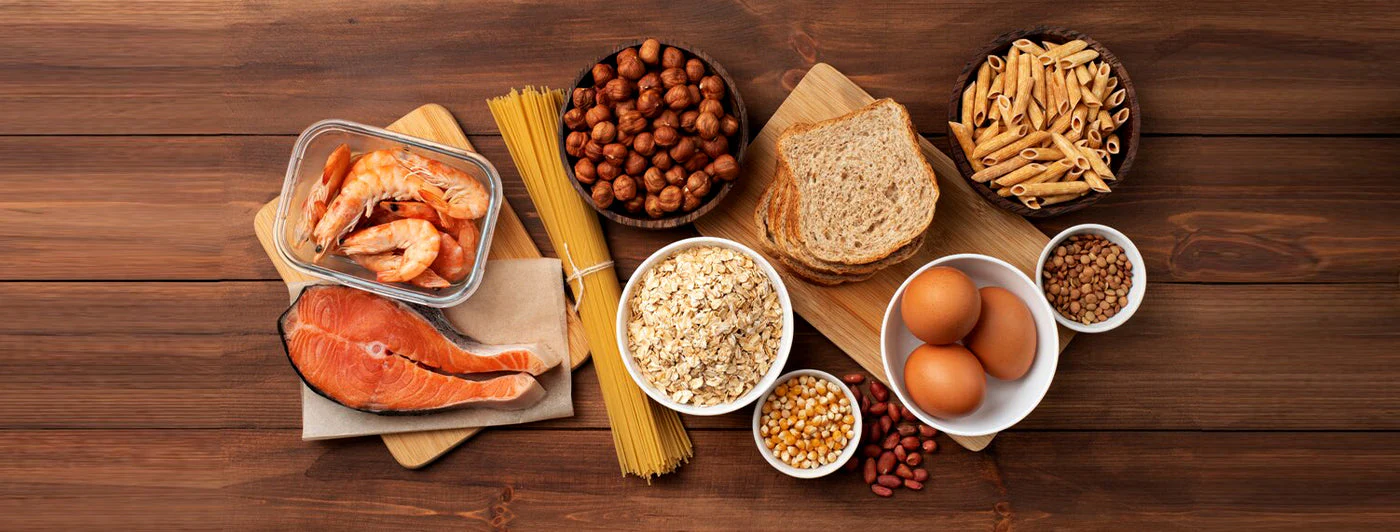
- Eat Regularly
Eating every 3-4 hours helps maintain energy levels and prevents muscle breakdown. Plan your meals and snacks ahead of time to ensure you get the right nutrients throughout the day. - Don’t Skip Meals
Skipping meals can lead to energy dips and hinder your workout performance. Prioritize meals that contain protein and complex carbs for sustained energy and muscle support. - Post-Workout Stretching and Refueling
Stretching helps prevent injury and promotes flexibility. After a workout, refuel with a balanced meal containing both protein and carbs. This supports recovery and replenishes glycogen stores.
Consulting with a Nutritionist
For a personalized fitness nutrition plan, consulting a professional can make a world of difference. Deepak KD, a practicing nutritionist and trainer, is available for consultations at D’FAB U Thane. She works with clients dealing with various health concerns, including obesity, diabetes, hypertension, and sports nutrition, ensuring that each individual receives tailored advice. Deepak’s expertise can help you optimize your nutrition based on your unique goals.
FAQs
- How much protein should I consume per day?
For muscle growth, aim for around 1.6–2.2 grams of protein per kilogram of body weight. If you’re looking to maintain muscle, around 1.2–1.6 grams is sufficient. - Can I lose weight while eating carbs?
Yes, carbs are essential for energy, but it’s important to choose the right kind—opt for complex carbs over simple sugars to prevent weight gain. - What is the best time to eat after a workout?
The best time to eat is within 30 minutes to an hour post-workout to optimize muscle recovery and replenish glycogen stores. - Should I avoid fats if I’m trying to lose weight?
Healthy fats, like those from avocados, nuts, and olive oil, are beneficial for your body. They support hormone production and help with nutrient absorption, so don’t avoid them completely. - How can I ensure I’m getting enough vitamins and minerals in my diet?
Eating a variety of colorful fruits and vegetables, along with lean proteins and whole grains, will ensure you’re getting a wide array of essential nutrients.
Final Thoughts
Fueling your body for success isn’t just about choosing the right foods; it’s about making informed choices that support your fitness goals. From eating the right nutrients before and after your workouts to maintaining hydration and adjusting your diet based on your specific needs, nutrition plays a pivotal role in achieving peak performance. Consult a nutritionist like Deepak KD to ensure you’re following the best plan for your body, and remember—your journey to fitness success starts with the food you choose to fuel it.
